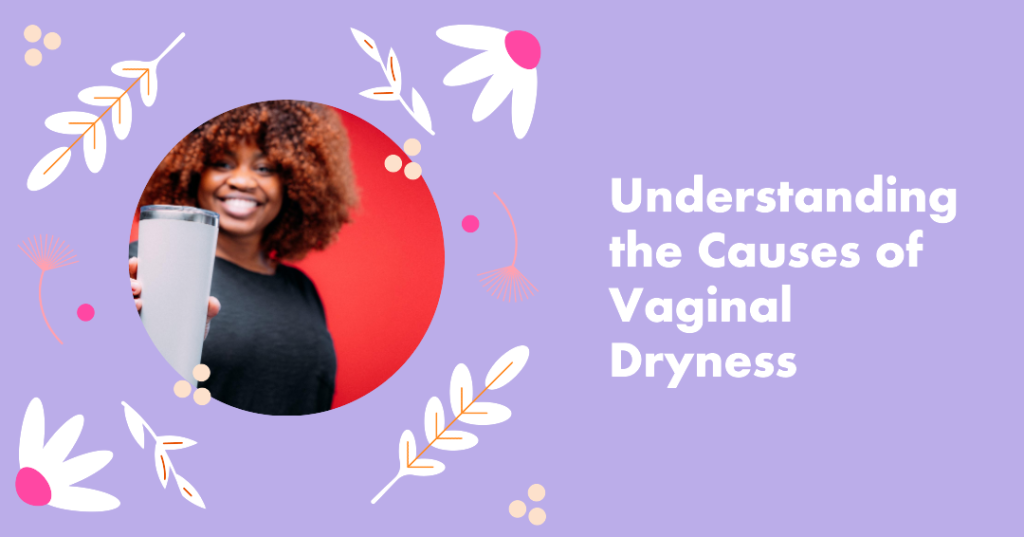Are you experiencing discomfort, itching, or pain during intercourse? Don’t let vaginal dryness hold you back from enjoying a fulfilling and intimate life.
This article will provide you with valuable information on the symptoms, causes, diagnosis, treatment, and prevention of vaginal dryness.

Learn how to identify the signs, explore the underlying causes, and discover effective treatments and preventive measures.
Take charge of your vaginal health and regain your confidence. Your well-being matters.
Key Takeaways
- Discomfort, itching, or pain during intercourse
- Decreased sexual desire and intimacy
- Importance of consulting a healthcare professional for guidance
- Home remedies may provide temporary relief but may not address the underlying cause
Vaginal Dryness Symptoms
Are you experiencing any symptoms of vaginal dryness? Vaginal dryness refers to a condition where the vaginal walls lack proper moisture, leading to discomfort and potential complications. One of the significant impacts of vaginal dryness is on sexual satisfaction.

The lack of lubrication can cause discomfort or pain during intercourse, making it less enjoyable for both partners. This can lead to a decrease in sexual desire and intimacy, potentially straining the relationship.
Additionally, the discomfort may create anxiety and stress, further impacting the overall sexual experience. It’s crucial to address these symptoms to maintain a healthy and satisfying sexual life.
The relationship implications of vaginal dryness can be significant. Intimacy is an essential aspect of any relationship, and sexual satisfaction plays a vital role in maintaining that intimacy.
When one partner experiences discomfort or pain during intercourse due to vaginal dryness, it can lead to a decrease in sexual activity and even avoidance of sexual encounters. This can strain the relationship, cause feelings of frustration, and potentially lead to emotional distance between partners. Open communication about the symptoms and seeking treatment together can help address these issues and strengthen the relationship.
If you’re experiencing symptoms of vaginal dryness, it’s essential to consult with a healthcare professional. They can provide appropriate guidance and treatment options to alleviate the discomfort and improve sexual satisfaction.
Vaginal Dryness Causes
If you’re wondering about the causes of vaginal dryness, it could be due to hormonal changes, certain medications, or even stress. Hormonal imbalance, especially during menopause, is a common underlying cause of vaginal dryness.

This occurs when there’s a decrease in estrogen levels, leading to a decrease in vaginal lubrication. Certain medications, such as those used for allergies or asthma, can also contribute to dryness by reducing the body’s natural moisture production. Additionally, stress can affect the body’s hormone levels and disrupt the natural lubrication process.
Understanding the causes of vaginal dryness is important in order to address the issue effectively. By identifying the underlying cause, healthcare providers can recommend appropriate treatments and interventions.
It’s important to note that vaginal dryness can also be a symptom of an underlying medical condition, such as vaginal atrophy or Sjögren’s syndrome. Therefore, it’s crucial to seek medical advice for a proper diagnosis.
Now that we’ve discussed the causes of vaginal dryness, let’s move on to the next important topic: diagnosis.
Vaginal Dryness Diagnosis
You should consult a healthcare provider for an accurate diagnosis and discuss potential treatment options for vaginal dryness.
Vaginal dryness is a common condition that can cause discomfort and pain during sexual intercourse. It can also lead to itching, burning, and a general sense of discomfort in the vaginal area.

The causes of vaginal dryness can vary, including hormonal changes, certain medications, and medical conditions like menopause or childbirth.
To diagnose vaginal dryness, your healthcare provider may perform various diagnostic procedures and medical examinations. These may include a physical examination of the vaginal area, a review of your medical history, and possibly blood tests to check hormone levels.
Your healthcare provider will use these diagnostic tools to determine the underlying cause of your vaginal dryness and recommend appropriate treatment options.
Treatment for vaginal dryness may include over-the-counter vaginal moisturizers or lubricants, hormone replacement therapy, or other medications to help restore moisture and relieve symptoms.
Treatment of Vaginal Dryness
There are multiple treatment options available for vaginal dryness, including using over-the-counter moisturizers or lubricants to help restore moisture and alleviate discomfort.
Here are some treatment options you can consider:
- Natural remedies: Some women find relief from vaginal dryness by using natural remedies such as coconut oil or vitamin E oil. These oils can help moisturize the vaginal area, providing temporary relief from dryness.
- Hormone therapy: If your vaginal dryness is due to hormonal changes, your doctor may recommend hormone therapy. This can be in the form of vaginal estrogen creams, tablets, or rings, which help replenish estrogen levels and improve vaginal lubrication.
- Non-hormonal prescription medications: There are non-hormonal prescription medications available that can help relieve vaginal dryness. These medications work by increasing blood flow to the vaginal area, improving lubrication.
- Laser therapy: In recent years, laser therapy has emerged as a treatment option for vaginal dryness. This procedure involves using laser energy to stimulate collagen production in the vaginal tissues, improving moisture and elasticity.
It’s important to discuss these treatment options with your healthcare provider to determine which one is best for you. Remember, prevention is key in managing vaginal dryness.
Prevention of Vaginal Dryness
To prevent vaginal dryness, make sure to stay hydrated and use a water-based lubricant during sexual activity. Prevention is key when it comes to maintaining vaginal health. Vaginal dryness can occur due to various factors such as hormonal changes, certain medications, stress, and medical conditions. By making some simple lifestyle changes, you can reduce the risk of experiencing vaginal dryness.

First and foremost, staying hydrated is crucial. Drinking an adequate amount of water each day helps to keep your body hydrated, including your vaginal tissues. Additionally, using a water-based lubricant during sexual activity can help to alleviate any discomfort and reduce friction, preventing dryness.
Maintaining a healthy lifestyle is also important. Eating a balanced diet rich in fruits, vegetables, and whole grains can support overall vaginal health. Regular exercise helps to improve blood circulation, which can benefit the vaginal tissues.
Avoiding irritants such as harsh soaps, douches, and scented products in the genital area is recommended as they can disrupt the natural pH balance and lead to dryness.
In addition to these preventive measures, there are various home remedies that can provide relief from vaginal dryness.
Vaginal Dryness Home Remedies
If you experience vaginal dryness frequently, consider trying some home remedies to alleviate the discomfort. Here are a few natural remedies and self-care techniques that may help:
- Stay hydrated: Drinking plenty of water can help maintain hydration throughout your body, including your vaginal tissues.
- Use a lubricant: Applying a water-based lubricant during sexual activity can help reduce friction and discomfort.
- Avoid irritants: Avoid using harsh soaps, douches, or scented products in the genital area, as these can further dry out the vagina.
- Eat a balanced diet: Consuming foods rich in omega-3 fatty acids, such as fish and nuts, may help improve vaginal lubrication.
It’s important to note that while these home remedies may provide temporary relief, they may not address the underlying cause of your vaginal dryness. If you continue to experience persistent or worsening symptoms, it’s recommended to visit a doctor. They can help identify any underlying medical conditions and provide appropriate treatment options.
Don’t hesitate to seek medical attention if you have concerns about your vaginal health.
When to Visit A Doctor with Vaginal Dryness?
If you experience persistent or worsening symptoms of vaginal dryness, it’s important to visit a doctor to address this disease. Seeking help from a specialist can provide you with the necessary guidance and treatment options to alleviate your discomfort.
Vaginal dryness can occur due to various factors such as hormonal changes, certain medications, and underlying health conditions. To better understand the causes and treatment options for vaginal dryness, it is essential to consult a healthcare professional.
They can conduct a comprehensive evaluation, which may include a physical examination and medical history review. By visiting a specialist, you can receive a proper diagnosis and personalized treatment plan tailored to your specific needs.
To highlight the importance of seeking help, here is a table outlining the potential symptoms of vaginal dryness, the possible causes, and the recommended actions to take:
| Symptoms | Causes | Recommended Actions |
|---|---|---|
| Persistent dryness | Hormonal changes | Consult a healthcare professional for evaluation and treatment options |
| Itching or discomfort | Certain medications | Discuss medication alternatives with your doctor |
| Pain during intercourse | Underlying health conditions | Seek medical advice to address the root cause of the pain |
Frequently Asked Questions
Is Vaginal Dryness a Common Symptom During Menopause?
During menopause, vaginal dryness is a common symptom due to hormonal changes. Estrogen plays a crucial role in preventing and treating it. Understanding these impacts can help you navigate this natural transition with safety and comfort.
Can Hormonal Birth Control Methods Cause Vaginal Dryness?
Hormonal birth control methods can potentially cause vaginal dryness. Although it is more commonly associated with menopause, some women may experience this side effect. It’s important to discuss any concerns with your healthcare provider.
Are There Any Natural Remedies That Can Help Relieve Vaginal Dryness?
Looking for natural remedies to relieve vaginal dryness? You’ll be glad to know that there are several options available. Incorporating lifestyle changes and trying out natural remedies can help alleviate this discomfort.
Can Stress or Anxiety Contribute to Vaginal Dryness?
Stress and anxiety can impact sexual health, potentially leading to vaginal dryness. It’s important to find healthy coping mechanisms to manage stress, such as exercise, relaxation techniques, and open communication with a healthcare provider.
Is Vaginal Dryness a Permanent Condition or Can It Be Treated Effectively?
Vaginal dryness is not a permanent condition. There are effective treatment options available to alleviate symptoms and improve comfort. However, it is important to consult a healthcare professional to discuss long-term effects and find the best approach for you.
Conclusion
If you or a loved one are experiencing symptoms of vaginal dryness such as itching, burning, or pain during intercourse, it’s important to seek medical attention.
The causes of vaginal dryness can vary, but a healthcare professional can provide an accurate diagnosis and recommend appropriate treatments.
By addressing this issue early on and adopting preventive measures, you can improve your overall vaginal health and enhance your quality of life.
Don’t wait – take control of your vaginal health today.
